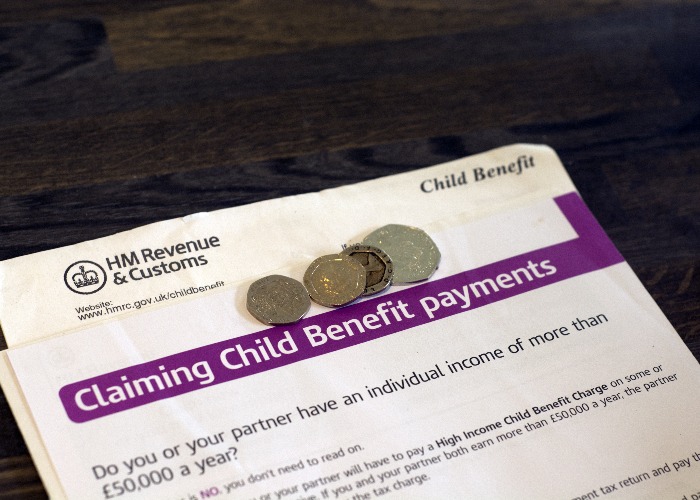High income Child Benefit charge: court ruling means thousands may be entitled to refund

Taxman faces calls to hand back high income Child Benefit charges it may have levied unfairly.
HMRC has been urged to swiftly refund parents who it has unfairly hit with the high income Child Benefit charge, after a court found against the taxman.
The charge is levied on families where one parent earns more than £50,000 in a single tax year and was introduced back in 2013.
However, the threshold has not changed since then, meaning that increasing numbers of families have now been caught out and have to pay back some or even all of the benefit they receive.
The court case
HMRC was taken to court by Jason Wilkes, after he was pursued for charges based on previous Child Benefit payments.
HMRC contacted Wilkes in 2018 to warn that he might be liable to pay the charge, based on the fact his wife had received Child Benefit between 2014 and 2017.
It then issued ‘discovery assessments’ for underpaid tax for previous years, which allows it to reopen closed tax years and issue new charges for those years.
Wilkes said he was unaware of the introduction of the charge for higher-income earners ‒ which HMRC accepted ‒ but also argued that the use of the discovery powers was unfair.
And the courts have now agreed with him, determining that the taxman may not impose the charge based on discovery assessments where the person liable for the charge did not file a Self Assessment tax return.
It’s notable that this decision by the Upper Tier Tribunal follows an earlier decision, also in favour of Wilkes, by the First Tier Tribunal.
What does this mean for you?
The first thing to point out here is that this decision is binding.
In other words, the taxman can’t just ignore it ‒ HMRC is not allowed to keep using these discovery assessments to wring more cash out of people who may not have paid the charge in previous years.
It also suggests that people who have previously been caught out in this way may be able to appeal against those charges and even get the money back.
James Austen, partner and head of tax disputes at Collyer Bristow ‒ which acted for Wilkes ‒ said that “hundreds of thousands” of taxpayers may be impacted by the ruling, and called on the taxman to swiftly reimburse those who have been wrongly charged.
He added: “HMRC has resorted to discovery assessments almost by default for far too long: this judgment will hopefully cause them to think more carefully about their proper use in future.”
My problem with the Child Benefit charge
The findings of the court are a big blow to the taxman, and potentially excellent news for thousands of families.
And from first-hand experience, I can tell you that this charge has its issues.
Historically, Child Benefit has been a universal benefit. You received it irrespective of your financial position; it’s universal.
I can understand why the Coalition Government felt the need to pull back on that given the state of the nation’s finances at the time, but even if we do need a means-tested system, then there has to be a better way of doing it than the current mess.
Under the current system, a family with one person working who earns above £50,000 has to start paying back the Child Benefit, but a family with two working parents who earn below that threshold ‒ but more overall ‒ keep the money in its entirety.
So two people earning £49,000 in one household will be eligible for the full benefit, but a single earner bringing in, say £52,000, will have to pay back a portion of it.
That unfairness is nothing new: it’s been baked in since the charge was introduced.
As a single income family, I’m well aware of how lucky I’ve been in those years when I have earned above that threshold, but equally, it sticks in the craw knowing that I have to pay the benefit back when other families, enjoying a significantly higher household income, are keeping their benefit.
If Child Benefit can no longer be a universal benefit, so be it.
But surely there has to be a fairer and more transparent way of determining who can receive it, and who doesn’t, which doesn’t involve massive discrepancies based on how many people in a household work, or involve the payment and then reclaiming of the benefit in the first place?
Do you think the Child Benefit charge needs reworking? Share your thoughts in the comments section below
Comments
Be the first to comment
Do you want to comment on this article? You need to be signed in for this feature